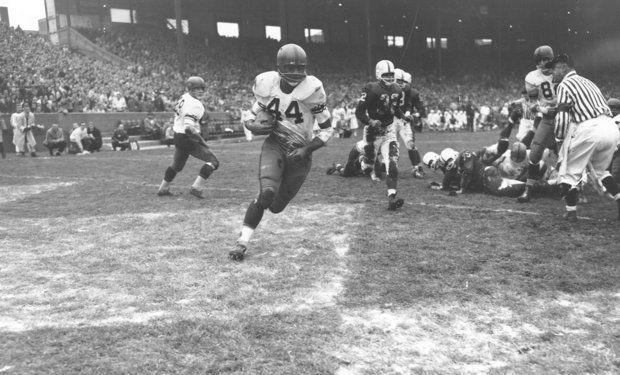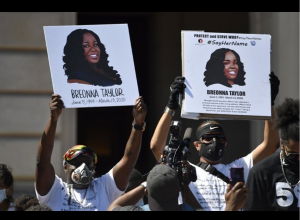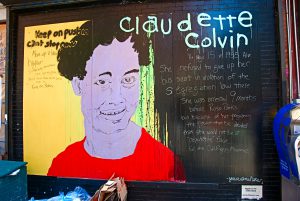Ernie Davis is remembered as one of the most dynamic running backs in NCAA football history. Overcoming adversity is something he had been doing since the time he was born in 1939 in his hometown of New Salem, Pennsylvania. A few days after Ernie was born, his father passed away and his mother was not in the condition to take care of her newborn child. So, Ernie was raised by his maternal grandparents in Uniontown, Pennsylvania. Growing up, Ernie had a bad stuttering problem leaving it hard for him to communicate with others, but his grandparents helped him cope with it and managed to instill strong faith and discipline in him. When Ernie turned twelve, his mother returned back to his life and had him move to Elmira, New York. As Ernie grew older, people all around town began raging about Ernie “the Elmira Express” Davis and his dynamic football skills. He was actively recruited by dozens of colleges. But swayed by his hero Jim Brown, he was convinced to attend the University of Syracuse.1

When Ernie Davis arrived at Syracuse in 1958, his welcome was anything but warm. His own teammates would beat him and target him in practice. There was an incident where a defensive player threw Ernie to the floor and beat him until the coaches pulled him off of Ernie. But, Coach Floyd Benjamin “Ben” Schwartzwalder pushed very hard to get the team to play as one and respect each other as a team rather than hate each other because of the color of their skin. Once Ernie became adapted to the school, and once his teammates warmed up to him, he was moved up to varsity. This was when Coach Schwartzwalder began to shape the young Ernie Davis into the Elmira Express that he would forever be remembered as. In practice, he quickly adapted to this collegiate level and was named the new starting running back for the season to come.2

After Syracuse finished the 1959 season with a respectable record of 8-2 and finishing tenth in the nation, many were hopeful for what the future held for the Fighting Orangemen. So, at the start of the 1960 football season, there were high expectations for both the young Ernie Davis and the Syracuse Fighting Orangemen.3 The Coaches and Boosters of the university questioned whether or not Davis would be able to fill the shoes of future Hall of Famer Jim Brown, and many wondered whether he could lead Syracuse to their first National Championship victory. Ernie Davis and the Fighting Orangemen hit the ground running and went undefeated in the regular season beating nine teams by over a twenty-one point margin.4
The regular season would be nothing compared to what they were going to face in the 1960 Cotton Bowl. The night before the highly anticipated game, Ernie and his team arrived in Dallas, and the hotel they made reservations at refused to let Ernie and two other teammates stay in the main part of the hotel. That night Ernie had to stay in the basement level of the hotel where he woke up to a pile of death threats and letters telling him not to compete in the Cotton Bowl. In fear of a violent outburst at the game, the Mayor of Dallas, Robert Lee Thornton, sent snipers to the stadium in an effort to try to ensure peace during the game.5
The moment of truth had finally come for the Orangemen, and it was time for the Elmira Express to lead his team to a National Championship victory at the Cotton Bowl. From the moment the ball was kicked off it was clear that Davis was playing on another level, as he averaged 7.8 yards per carry. As the game progressed, Ernie started getting beat up after plays, particularly in dog piles, and they gradually got worse. Tensions between the two teams were rising. Ernie Davis was beaten so badly after one play that he had to be escorted to the locker room so a doctor could look at his already injured hamstring. But, Davis would later be returned to the game, after going against what the doctor had suggested, which was to sit out the rest of the game and take it easy. Halftime was approaching and the score was 15-0. Syracuse was up and the aggression and altercations began to get worse. Then: “John Brown, a Negro lineman, played nose to nose against 235-pound Texas tackle Larry Stephens. To goad him off balance, Brown claimed, Stephens kept calling him ‘a big black dirty nigger.’ Finally, Brown warned him not to call him that again. When Stephens did, Brown swung.”6 That punch exploded into an all-out brawl between Texas and Syracuse, which would come to be known as “The Battle of the Hard-Noses.” Syracuse eventually went on to win the Cotton Bowl and claim their first National Championship in school history.7
The 1961 season came, and Ernie Davis just kept getting better. That season, he averaged 7.8 yards per carry and ended up breaking the school record for touchdowns in a single season. Everyone in the country was watching The Elmira Express shatter records and continue to carry his team to victory. The Fighting Orangemen would end up finishing the season 8-3, and finished sixteenth in the country and won the Liberty Bowl.8 Once the Season was concluded, the press and people began to discuss the Heisman Trophy Ceremony. Even President John F. Kennedy sent Ernie Davis a telegram commending him on fighting and competing in a sport he loved, and wished him luck in his NFL career and the upcoming Heisman Trophy Ceremony. Although the president was very supportive of young Ernie Davis, much of the country still made it hard for Davis to go places or be normal. There were many reports that he had still been receiving death threats constantly since the Cotton Bowl. There was even an incident where people were throwing food at him in public while he was on a run in the weeks leading up to the Heisman.9

For many years, African-American players weren’t even considered for the Heisman Trophy. Even the NFL Hall of Famer and Ernie Davis’s hero, Jim Brown, was nominated and clearly deserved the Heisman in 1958. When the day of the Heisman Trophy Ceremony had finally arrived, there was still no clear candidate that stuck out as the next Heisman trophy winner. So who would win was still very unclear to the country. But in 1961, Ernie Davis became the first African American to win the Heisman Trophy, and JFK was there to present the trophy to him personally. This event gave the Civil Rights movement momentum, and helped Americans begin to see that this concept of equality could be achieved.10
After winning the Heisman Trophy, Ernie Davis was prepared for the All-American game and was drafted by the Cleveland Browns as the first overall pick in the 1962 NFL draft. One day, while at practice, Davis passed out and laid unconscious on the field, and was rushed to the hospital. He was placed in the hospital for an extended period of time, and the doctors ran numerous tests on him. After this time, he was eventually released from the Cleveland Browns because they discovered that he had been diagnosed with leukemia.11
On May 18, 1963, Ernie the Elmira Express Davis died. Ernie Davis changed the game of football; he was the first African American to win the Heisman and be the first pick in the NFL draft. Davis never said much, but he led by action, and made change through action. He became an inspiration to a lot of people in American society and refused to ever let the color of his skin hold him back from chasing his dreams. He will forever be remembered for that.12
- Eric Quackenbush, “Ernest ‘Ernie’ Davis: The Elmira Express,” Bleacher Report, June 24, 2009. Accessed February 7, 2018. http://bleacherreport.com/articles/205915-ernest-ernie-davis-the-elmira-express. ↵
- Brad Kelly, “Ernie Davis, Uplifting Champ Rush To The Top: He led Syracuse to the national title before his young death,” Investors Business Daily, December 14, 2009. Accessed January 29, 2018. ↵
- Eric Quackenbush, “Ernest ‘Ernie’ Davis: The Elmira Express,” Bleacher Report, June 24, 2009. Accessed February 7, 2018. http://bleacherreport.com/articles/205915-ernest-ernie-davis-the-elmira-express. ↵
- Eric Quackenbush, “Ernest ‘Ernie’ Davis: The Elmira Express,” Bleacher Report, June 24, 2009. Accessed February 7, 2018. http://bleacherreport.com/articles/205915-ernest-ernie-davis-the-elmira-express. ↵
- Ben Cosgrove, “LIFE at the 1960 Cotton Bowl: ‘Battle of the Hard-Noses’,” Time, January 2, 2014. Accessed January 29, 2018. http://time.com/3878581/cotton-bowl-1960-when-syracuse-whipped-texas-forthe-national-title/. ↵
- Ben Cosgrove, “LIFE at the 1960 Cotton Bowl: ‘Battle of the Hard-Noses’,” Time, January 2, 2014. Accessed January 29, 2018. http://time.com/3878581/cotton-bowl-1960-when-syracuse-whipped-texas-forthe-national-title/. ↵
- Ben Cosgrove, “LIFE at the 1960 Cotton Bowl: ‘Battle of the Hard-Noses’,” Time, January 2, 2014. Accessed January 29, 2018. http://time.com/3878581/cotton-bowl-1960-when-syracuse-whipped-texas-forthe-national-title/. ↵
- Eric Quackenbush, “Ernest ‘Ernie’ Davis: The Elmira Express,” Bleacher Report, June 24, 2009. Accessed February 7, 2018. http://bleacherreport.com/articles/205915-ernest-ernie-davis-the-elmira-express. ↵
- Eric Quackenbush, “Ernest ‘Ernie’ Davis: The Elmira Express,” Bleacher Report, June 24, 2009. Accessed February 7, 2018. http://bleacherreport.com/articles/205915-ernest-ernie-davis-the-elmira-express. ↵
- Sean Krist, “Ernie Davis and JFK: More than 50 years ago, key figures in D.C. football time of change,” Syracuse.com, August 20, 2o14. Accessed February 21, 2017, http://www.syracuse.com/kirst/index.ssf/2014/08/ernie_davis_and_jfk_more_than_50_years_ago_key_figures_in_another_dc_football_ca.html. ↵
- Eric Quackenbush, “Ernest ‘Ernie’ Davis: The Elmira Express,” Bleacher Report, June 24, 2009. Accessed February 7, 2018. http://bleacherreport.com/articles/205915-ernest-ernie-davis-the-elmira-express. ↵
- Salem Press Biographical Encyclopedia, January 2016, s.v. “Ernie Davis,” by Stephen Schwartz. ↵



64 comments
Christopher Hohman
Nice article. Ernie Davis was an extraordinary young man. He was not only a great player, but he was also a very brave man. To face the racism that he did for just wanting to play football and be one of the best is quite extraordinary. It is sad that his team at Syracuse did not like him initially. It kind of reminds me of Jackie Robinson. He too faced racism for wanting to play the sport he loved. It is so sad that Ernie died so young from such a deadly disease. I wonder what he would have become if he had played in the NFL
Jose Fernandez
I think Ernie Davis should be admired for his perseverance and hard work. He was discriminated during most of his career and it didn’t stop him to become a legend and change the world of football. I think it is interesting that many of the best players in the history of this sport have a rough past. It is admiring how he overcame all sorts of obstacles and showed the people how wrong they were.
Avery Looney
Before reading this article I did not know who Ernie Davis was. Davis was a very impactful figure in the civil rights movement and was the first African American to win the Heisman Trophy and be drafted as the number one overall pick in the NFL draft. Davis experienced discrimination everywhere he went: From fans, to hotel employees, his own teammates and many others. It is sad that once Davis achieved his dream of playing in the NFL he would be diagnosed with leukemia and cut from his team.
Mason Meza
This article is very interesting. I am not the biggest Football fan but i enjoy watching it a lot. This article is very factual and has a very inspiring story. With telling me about Ernie Davis being the first African-American to with the Heisman and to be chosen first in the draft. I have never heard of Ernie Davis before this, but this article did a very good job of explaining who he is and what he accomplished.
Adam Portillo
I remember seeing the Ernie Davis film when I was younger and i cam to admire Ernie Davis for the person he was as well as the Football player he was. I think Ernie Davis left a long lasting impact on people as well as the game of football. In his time he was very influential and overcame a lot of boundaries as well as personal adversity. The story of Ernie Davis is for sure inspiring for a lot of people.Ernie Davis made history and his legacy will live on. Great article on the story of Ernie Davis I enjoyed reading it.
Daniel Linstead
Football isn’t a sport that I have grown up with, and understand being an international student. However, doesn’t matter if you like, dislike, or even hate the sport, you have to have a lot of respect for Ernie Davis because of how much adversity he had to overcome. It is truely inspirational to see how driven he was to overcome everything that everyone doubted him. Great informative article.
Caden Floyd
I was devastated when I read that Ernie passed out on the field and was diagnosed with leukemia, especially because of the fact that he had influenced the world so much. Not only was he an inspiration to up and coming black football players, but he also gave momentum to the civil rights movement. From sleeping in the basement and receiving a while pile of death threats to winning the national championship against the white radical Texas team shows his character and drive to play the game that he loved no matter what. I personally didn’t know who Ernie Davis was before reading this article, but even I am now inspired by his courage.
Micaela Cruz
I am a huge football fan, and I had always heard about the legendary Ernie Davis. I found this article to be quite informative as I learned so much more about Ernie Davis than I had ever known before. Ernie Davis is not just a legend for breaking racial barriers and for breaking school records, he seemed to be the type of man who had such a big heart, a role model of sorts. His love for football was shown through each play he ran, each touchdown he scored and through his determination to prove to everyone that he was so much more than what they saw of him on the outside, specifically speaking about his color. My admiration for Ernie Davis has very much grown after reading this article.
Adrian Cook
Ernie Davis was a true leader in the fight against social injustice. The 1960’s was not an easy time for African Americans and minorities but that didn’t matter to him because he just went out there and played football. I’m glad he was someone made with a heart of steel and lots of adversity to fight through the challenges put in front of him and it came with great reward. It’s terrible to hear of anyone passing away but he left a legacy that would be remembered forever and set the building blocks for the future of the nation.
Fumei Pinger
This story really resonates with me. I was raised to always be kind and respectful to everyone, it’s hard for me to imagine hating someone or treating someone differently because of their skin tone. Ernie Daivs lived it, he experienced hate and he was bullied his entire life. I admire his integrity, self-respect, and determination. The end of this article was so unexpected, I actually shocked after reading it. I wish he had a more time to live and see the world around him change.